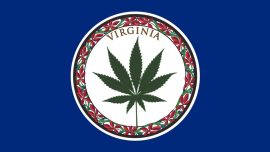
This comprehensive guide to 280E for cannabis businesses in the United States is designed to assist industry stakeholders in complying with the tax laws while also maximizing any possible deductions or exemptions. Herein we exhaustively detail the history, impact, and future of US tax code 280E, and how cannabis businesses can reasonably maintain compliance with these seemingly heavy-handed laws. 280E consists of three simple lines of tax code that have created a significant and sometimes fatal burden for regulated cannabis businesses nationwide:
“No deduction or credit shall be allowed for any amount paid or incurred during the taxable year in carrying on any trade or business if such trade or business consists of trafficking in controlled substances which is prohibited by Federal law or the law of any State in which such trade or business is conducted.”26 U.S.C. § 280E[1]
Enacted in September of 1982 with the intention of curtailing illegal drug trafficking, section 280E from Title 26 of the Internal Revenue Code denies all standard business credits and deductions for licensed cannabis operators. This includes ordinary business expenses such as rent, facility maintenance, advertising, and employee insurance premiums. Usually, these deductions lower the taxable income of a business, resulting in less overall federal tax liability. Cannabis businesses are instead taxed on the entirety of their income without the offset of operational expenditures, creating profitability issues throughout the industry.
History of 280E
Cannabis has been classified federally by the Drug Enforcement Administration (“DEA”) as a Schedule I drug[2] since drugs were first scheduled in 1970. Schedule I substances are defined by three characteristics[3]: a high potential for abuse, a lack of accepted safety for use of the drug under medical supervision, and no currently accepted medical use for treatment in the United States. This categorization is meant to represent substances with the highest potential for abuse. Other Schedule I drugs include heroin, LSD, ecstasy, and peyote. Isomers or other pharmacologically similar derivatives of Schedule I drugs intended for human consumption[4] are considered to be Schedule I drugs as well. Interestingly, the National Commission on Drug Abuse created by Richard Nixon recommended the decriminalization of cannabis in 1972, stating that the drug does not present a potential danger to public safety; however, this advice was not taken, and cannabis remains a Schedule I substance over 50 years later.
The IRS has long maintained that all income is taxable and should be reported, regardless of whether the income was legally obtained or not[5],[6],[7]. In 1974, a self-employed cocaine and cannabis dealer in Minnesota by the name of Jeffrey Edmondson abided by these guidelines and filed an income tax return showing his gross revenue, cost of goods sold, and standard business deductions. His business deductions included packaging expenses, a small measuring scale, telephone expenses, and automobile expenses such as maintenance and mileage. The Tax Commissioner responded with a deficiency notice that found reason to disallow all business expenses, including costs of goods sold. The resulting court case, Edmondson v Commissioner, determined in 1981 that despite the illegality of actions and subsequent conviction of Edmondson related to drug trafficking, all of his necessary business tax deductions should be allowed[8]. Due to inconsistencies in Edmondson’s inventory tracking, calculated costs of goods sold were disallowed as deductions in the final verdict. Less than a year later Section 280E was added to the tax code, applicable to all businesses associated with trafficking Schedule I and II substances. The Senate Finance Committee report[9] at the time provided the following statement as justification:
“Ordinary and necessary trade or business expenses are generally deductible in computing taxable income. A recent US Tax Court case allowed deductions for telephone, auto, and rental expenses incurred in the illegal drug trade. In that case, the Internal Revenue Service challenged the amount of the taxpayer’s deduction for the cost of goods (illegal drugs) sold, but did not challenge the principle that such amounts were deductible. On public policy grounds, the Code makes certain otherwise ordinary and necessary expenses incurred in a trade or business nondeductible in computing taxable income. These nondeductible expenses include fines, illegal bribes and kickbacks, and certain other illegal payments. There is a sharply defined public policy against drug dealing. To allow drug dealers the benefit of business expense deductions at the same time that the U.S. and its citizens are losing billions of dollars per year to such persons is not compelled by the fact that such deductions are allowed to other, legal, enterprises. Such deductions must be disallowed on public policy grounds.”
Congress and the Congressional Research Service maintain that the use of ‘or’ in Section 280E extends the statute to situations in which federal law prohibits the conduct even if state law allows it[10]. The Tax Court has defined “trafficking” to mean “to engage in commercial activity: buy and sell regularly” and therefore the purchase and sale of cannabis constitutes trafficking even when permitted by state law. The Congressional Research Service and The Internal Revenue Service further maintain that criminal charges are not a necessary precursor to an audit[11] or investigation related to 280E.
280E Reform Efforts
Legislation has been filed at the federal level in each session for the last decade to improve the cannabis business environment in the US, with several examples listed here. Multiple bills have been introduced specifically to exempt state licensed cannabis businesses from the 280E restrictions.
2013 – Rep. Earl Blumenauer (D-OR) – H.R.2240 – “Small Business Tax Equity Act” looked to create an exception to IRC 280E that allows businesses operating in compliance with state laws to take business-related deductions associated with the sale of marijuana just like any other legal business[12],[13].
2015 – Sen. Ron Wyden (D-OR) – S.987 – “Small Business Tax Equity Act[14]” see above for description.
2017 – Rep. Carlos Curbelo (R-FL) – H.R.1810 – “Small Business Tax Equity Act” see above for description.
2017 – Sen. Cory Booker (D-NJ) – S.1689 – “Marijuana Justice Act” sought to remove marijuana and THC from Schedule I of the Controlled Substances Act and establish a Community Reinvestment Fund in the Treasury, with funds reinvested into communities most affected by the war on drugs[15].
2018 – Sen. Cory Gardner (R-CO) and Sen. Elizabeth Warren (D-MA) – S.3032 and Rep. David Joyce (R-OH) – H.R.6043 – “Strengthening the Tenth Amendment Through Entrusting States (STATES) Act” vowed to eliminate regulatory controls and administrative, civil, and criminal penalties under the Controlled Substances Act for marijuana-related conduct and activities that are authorized by state or tribal law. It also expands banking options for cannabis businesses as a result[16].
2018 – Sen. Chuck Schumer (D-NY) – S.3174 – “Marijuana Freedom and Opportunity Act” aimed to remove marijuana from the list of scheduled substances, eliminate criminal penalties associated with import, export, and distribution, and require federal research on the impact of marijuana use on public health[17].
2019 – Sen. Kamala Harris (D-CA) – S.2227 and Rep. Jerrold Nadler (D-NY) – H.R.3884 -“Marijuana Opportunity Reinvestment and Expungement Act” commonly referred to as the MORE Act, this bill attempted to legalize marijuana at the federal level and allow state-legal cannabis businesses to deduct ordinary and necessary business expenses from their federal taxes[18].
2019 – Rep. Ed Perlmutter (D-CO) – H.R.1595 – “Secure and Fair Enforcement Act” commonly referred to as the SAFE Banking Act, would offer protections for banks that provide financial services to state-legal cannabis businesses[19]. While not directly related to 280E, this would have significantly reduced the financial burden currently facing cannabis operations.
2019 – Rep. Greg Steube (R-FL) – H.R.4323 – “Marijuana 1-to-3 Act” sought to change cannabis to a Schedule III substance given multiple currently accepted medical uses and low potential for abuse or dependence[20], which would have removed 280E implications for cannabis businesses.
2019 – Sen. Ron Wyden (D-OR) – S.420 and Rep. Earl Blumenauer (D-OR) – H.B.1120 – “Marijuana Revenue and Regulation Act” would have repealed Section 280E and established a federal regulatory framework for the taxation and regulation of the cannabis industry[21],[22].
2019 – Sen. Chuck Schumer (D-NY) – S.1552 – “Marijuana Freedom and Opportunity Act” see above for description.
2019 – Sen. Elizabeth Warren (D-MA) and Sen. Cory Gardner (R-CO) – S.1028 and Rep. Earl Blumenauer (D-OR) and David Joyce (R-OH) – “STATES Act” see above for description.
2019 – Rep. Earl Blumenauer (D-OR) – H.R.1118 and Sen. Ron Wyden (D-OR) – S.422 – “The Small Business Tax Equity Act” see above for description.
2021 – Rep. Jerrold Nadler (D-NY) – H.R.3617 -“MORE Act” see above for description.
2021 – Rep. Nancy Mace (R-SC) – H.R.597 – “STATES Act” see above for description.
2021 – Rep. Ed Perlmutter (D-CO) – H.R.1996 – “SAFE Banking Act” see above for description.
2021 – Rep. David Joyce (R-OH) – H.R.3105 – “Common Sense Cannabis Reform for Veterans, Small Businesses, and Medical Professionals Act” sought to remove federal restrictions on marijuana-related activities that are authorized by state and tribal law, specifically removing cannabis from the list of scheduled substances and creating protections for banks and depository institutions who provide financial services to marijuana-related businesses[23].
2022 – Rep. Nancy Mace (R-SC) – H.R.9702 – “Amend IRC of 1986 to allow deductions and credits relating to expenditures in connection with marijuana sales conducted in compliance with State law” titled based on its intention[24], this bill would have appended the current 280E language to allow standard tax deductions for state licensed cannabis businesses.
2022 – Sen. Chuck Schumer (D-NY) – S.4591 – “Cannabis Administration and Opportunity Act (CAOA)” would have legalized cannabis at the federal level and provided a number of reforms for the cannabis industry, such as expungement of federal marijuana convictions and tax relief for state-legal cannabis businesses[25].
Despite significant lobbying efforts, these bills have failed to gain sufficient and timely bipartisan and bicameral support. In 2023, the relevant bills are once again “Small Business Tax Equity Act” (H.R.2643) filed by Oregon Representative Earl Blumenauer and the “Marijuana 1-to-3 Act” (H.R.610) from Florida Representative Greg Steube, with the same aims as previous filings. Cosponsors of the Small Business Tax Equity Act include Representatives Nancy Mace of South Carolina, Barbara Lee of California, Danny Davis of Illinois, and David Joyce of Ohio.
Reclassification of cannabis has been pursued by many industry advocates, which could mitigate the current tax burden. Controlled substances are defined in 280E as all schedule I and II substances of the Controlled Substances Act, from the five possible categories. Interestingly, the naturally occurring compound cannabidiol is classified as a Schedule V[26] drug, and the synthetic cannabinoid dronabinol is listed as a Schedule III[27] drug; both compounds have received approval from the FDA for safe and effective medical uses[28] – since 1985[29] in the case of dronabinol. Advocates at state and federal levels have argued for the reclassification of cannabis given its medical uses in many states. The DEA stands by the scheduling of cannabis[30], and as recently as 2016[31] said “Marijuana lacks accepted safety for use under medical supervision. At present, there are no marijuana products approved by the U.S. FDA” after a five-year evaluation process. Complete declassification is favored within the industry to eliminate the discrepancies between state and federal law related to cannabis. However, the DEA has issued a statement that “in view of United States obligations under international drug control treaties[32], marijuana cannot be placed in a schedule less restrictive than Schedule II.”
Reform efforts are ongoing. In October of 2022, President Biden requested that the Department of Justice and Department of Health and Human Services expeditiously review how marijuana is scheduled under federal law[33]. Both Departments committed to this[34], though a timeline for their discovery has not been provided. Congress and the Presidential Administration each have the ability to re- or de- schedule cannabis[35].
Current Impact of 280E
Today, the vast majority of states have legalized cannabis for medical use, along with 23 states and the District of Columbia allowing for recreational use[36]. Despite this public support, 280E is still being applied to licensed cannabis businesses, including those providing medical cannabis to patients with a prescription. The result is increased tax liability and reduced profitability for safe and regulated businesses. Given two companies – one a cannabis retailer and the other a retailer not impacted by IRC section 280E – with the exact same gross revenue, costs of goods sold, and gross income, the non-cannabis company will have a lower taxable income due to allowable standard business deductions, and therefore less federal tax due, than the cannabis retailer.
The primary mechanism through which cannabis businesses can reduce their gross receipts is costs of goods sold (“COGS”). COGS most often includes the cost of raw materials, active manufacturing, and packaging materials. Many cannabis businesses choose to stretch the idea of an inventory item to increase overall capitalization, though this significantly increases the risk of a tax audit. The IRS expects businesses to determine COGS consistently with IRC Section 471[37] and associated Treasury Regulations. Precise inventory records must be maintained to meet IRC 1.471 regulations[38], which specifically defines inventory capitalization rules with slight differences for cannabis processors[39] versus resellers[40]. Trades and businesses that are impacted by 280E cannot deduct charitable contributions or gifts as described in IRC Section 170[41], losses or depreciation as stated in Section 165 and 167 of the IRC, nor rentals or traveling expenses as defined in IRC 162(a)[42].
Comparatively, FDA regulated products such as alcohol, nicotine, sugar, and similar have excise fees that each business is responsible for, but none of these industries have restrictions on their gross or net income tax calculations. Most often, cannabis businesses are subject to 280E restrictions in addition to state and local excise or use fees. Generally, businesses can deduct certain taxes paid or otherwise accrued outlined in IRC Section 164(a)[43], but cannabis businesses cannot do so. Tax debt in the cannabis industry is a massive and pervasive problem. A 2022 Green Market Report analysis[44] showed that 10 multistate cannabis businesses owe over half a billion dollars in federal tax debt. In hopes of near-future tax code changes, forgoing tax payments is an intentional though unwise decision by cannabis operators.
It is critical to have compliant and reliable internal accounting systems in place to determine COGS, schedule all tax and fees due, and be prepared for an audit. Generally Accepted Accounting Principles[45] (“GAAP”) require accrual accounting, which recognizes costs and expenses as they occur as opposed to when they are paid. Cash or accrual methods may be used for cannabis business bookkeeping; income must be calculated for taxes via the same accounting methods as all other business records are kept. The IRS estimates that it audits 1.03% of business tax returns[46], and cannabis industry surveys[47],[48] have estimated that 6% of cannabis businesses have undergone tax audits, which indicates the IRS is especially interested in the tax compliance of cannabis operations.
280E State by State
Most states adopt federal tax policy directly to their own state level tax code as a matter of course; this includes section 280E. States and local municipalities may also apply an excise tax or use fees in addition to sales tax and income tax, which means that businesses should always check local ordinances for special taxes specific to the cannabis industry in addition to 280E. Fortunately, as states legalize cannabis use and encourage investments in local regulated cannabis operations, some officials have eliminated the unfair tax burdens for these new businesses.
Colorado was the first state to explicitly allow cannabis corporations[49] and individual[50] owners to take standard deductions on their income tax returns, with former Governor (now Senator) John Hickenlooper passing the legislation in 2014. Notably Washington state, where recreational cannabis was legalized the same year as Colorado, has no state income tax[51] and therefore cannabis operators in Washington have never been impacted by 280E at the state level.
Delaware is a standout state in regard to 280E. In their legislation initially legalizing recreational cannabis, provisions were preemptively made to allow for all ordinary and necessary expenses paid or incurred to be deducted from state taxes[52], including reasonable salaries, for all businesses operating in compliance with the state program.
Several states have adopted 280E exemptions exclusively for medical cannabis businesses. Arkansas does not generally conform to federal tax standards, and imposes tax on the net income of individuals and corporations with IRC 162 deductions allowed with no mention of restricted businesses.
If Arkansas moves forward with recreational cannabis in the future without specific related changes to their tax code, recreational operators in the state will not be impacted by 280E.
Effective for tax years beginning after December 31, 2015, Hawaii allows taxpayers engaged in medical marijuana businesses to deduct ordinary business expenses and claim tax credits on their income taxes.
In Maine, registered marijuana caregivers or dispensaries[53] can subtract from their state level gross income the amounts disallowed by 280E for tax years after 2017.
Montana also changed their tax policy in 2017 to allow licensed medical marijuana businesses to deduct ordinary and necessary business expenses.
Minnesota also allows subtractions on state income taxes[54] for federally disallowed IRC 280E expenses for medical cannabis operators.
Louisiana began to accept deductions on state level income returns in 2021 for expenses related to the production or dispensing of marijuana exclusively recommended for therapeutic use[55] by patients clinically diagnosed as suffering from a debilitating medical condition as defined in R.S. 40:1046(A).
For tax years 2022 and forward, licensed cannabis businesses in Missouri can subtract business expenses from their gross income on tax returns, provided by the state Marijuana Business Deduction.
In March of 2023, the District of Columbia passed into law several changes[56] for their medical marijuana program, including the allowance of typical business credits and deductions related to 280E on tax returns, and the unique adoption of a permanent sales tax holiday every year from April 15th until April 24th, in which no sales tax will be collected from medical cannabis sales in the District[57].
States that have created specific tax provisions for all cannabis businesses include New Jersey, where Governor Phil Murphy recently passed A-3946/S-340 into law, which allows cannabis businesses the option to deduct their expenses when filing state taxes.
Connecticut is the newest state to decouple from the federal tax code in regard to 280E, with Governor Ned Lamont signing H.B.6941 into law on June 12th of 2023. The law specifies[58] that deductions claimed under IRC 162(a) but forbidden under 280E are now permitted for any taxpayer licensed under the Connecticut state program.
Illinois will no longer copy 280E at the state level since Governor J.B. Pritzker passed HB 3817 into law[59] earlier this year. Cannabis operators licensed under the state Cannabis Regulations and Tax Act can now deduct necessary and regular business expenses from their state income, which will reduce their overall tax liability.
States that enacted similar legislation in previous years include Vermont, where normal deductions and exemptions are allowed for all cannabis businesses[60], and California[61], Massachusetts, Pennsylvania, Michigan, and New Mexico.
Oregon has allowed cannabis businesses to deduct expenses that would otherwise be permitted, if not for 280E, since 2016, and in 2023 enacted a rule[62] that directs companies to provide proof of tax compliance to the Commission to maintain or renew their license.
New York state passed budget provisions that allow licensed cannabis businesses to take ordinary tax deductions for tax years beginning in 2023, and New York City is set to copy this change later this year.
Other states have attempted to pass similar measures but have lacked the necessary support. Earlier this year in Virginia the state Senate unanimously passed a bill that would allow current licensed medical cannabis operators in Virginia to take standard tax deductions; the bill was subsequently voted on and opposed in the state House of Delegates. Rhode Island Senator Jonathon Acosta and Representative Scott Slater recently introduced R.I.S.B.968 and R.I.H.B.6209, respectively, which would allow licensed medical cannabis establishments to claim any deductions to income that would be allowable under the laws of the US but for 26 USC 280E; the House and Senate versions of these bills have both been recommended to be held for further study. Senator Young of Maryland introduced S.B.333 in 2018 that would create a subtraction modification for certain business expenses related to medical cannabis cultivation, processing, dispensing, and testing; the bill was cross-filed in the house, but stalled after referral to multiple committees. Maryland officials have reintroduced the bill in each legislative session since and it has faced an identical demise. Oklahoma currently has three bills, S.B.1117, S.B.389, and H.B.2101, introduced to the state legislature to remove the 280E burden from licensed cannabis operators in the state.
The Future of 280E
The future of IRC 280E is uncertain. President Biden has made promises about rescheduling cannabis as Schedule III-V, which would remove it from the 280E umbrella and would not impact current tax debts. There is a related joint scientific review from the US Department of Health and Human Services and the DEA in progress; the President expects the DEA will make the final scheduling determination based on this evaluation[63].
It may be found in court that 280E as applied to cannabis operators is unconstitutional in the context of federalism[64],[65] – as argued in the Supreme Court case[66] Alpenglow Botanicals v USA – since the public majority[67] have given their approval for cannabis and the majority of states[68] have a medical cannabis program, yet the government still influences the direction of the industry through taxation.
Individual states have made changes in favor of cannabis operators, and the rate of positive change thus far this year is exceptional and likely to continue. There are current bills in the House and Senate for 280E amendments and otherwise in support of fair taxation for cannabis businesses. Significant advocacy has happened for similar bills, but serious persistent efforts are still needed to move the industry forward.
How to Maintain Compliance with 280E
To summarize, cannabis businesses maintain compliance with IRS tax code 280E by not taking the types of deductions detailed herein, even though the denial of these deductions for ordinary expenses results in an unfair business taxation on gross income. Additionally, state and local tax codes can change quickly, retroactively, and with little to no notice, and there are additional tax decisions for cannabis business owners including business structure, IRC compliance, and Financial Crimes Enforcement Network documentation. For deep industry insider guidance to ensure unwavering compliance with 280E and all other federal, state, and local tax codes and regulations, contact Cannabis Consultants Group for expert guidance. Stakeholders can also get updates from the IRS about 280E on the agency’s website specifically for cannabis business owners[69].
REFERENCES:
[1] Title 26 of U.S. Code, Section 280E. Accessed at https://uscode.house.gov/view.xhtml?req=granuleid:USC-prelim-title26-section280E&num=0&edition=prelim
[2] 21 U.S.C. § 812(c).
[3] DEA Drug Scheduling. Accessed at https://www.dea.gov/drug-information/drug-scheduling
[4] 21 U.S.C. §813. Accessed at
https://uscode.house.gov/view.xhtml?req=granuleid:USC-prelim-title21-section813&num=0&edition=prelim
[5] IRS Publication 525 (2022). “Illegal Activities.”
[6] Internal Revenue Code 61.
[7] Commissioner v. Glenshaw Glass Co., 348 U.S. 426 (1955).
[8] United States Tax Court. T.C. Memo, 1981-623, 42 TCM 1533 (1981). Docket No. 4586-76. Accessed at https://www.leagle.com/decision/1981157542mqtcm153311221
[9] Senate Report 97-494 Volume 1 Part 2(IV)(11)(a).
[10] Standing Akimbo, LLC v. United States, 955 F.3d 1146, 1158 (10th Cir. 2020).
[11] Green Sol. Retail, Inc. v. United States, 855 F.3d 1111, 1121 (10th Cir. 2017).
[12] House Bill 2240. https://www.congress.gov/bill/113th-congress/house-bill/2240
[13] Representative Blumenauer, https://blumenauer.house.gov/small-business-tax-equity-act-faq
[14] Senate Bill 987. https://www.congress.gov/bill/114th-congress/senate-bill/987
[15] Senate Bill 1689. https://www.congress.gov/bill/115th-congress/senate-bill/1689
[16] Senate Bill 3032. https://www.congress.gov/bill/115th-congress/senate-bill/3032
[17] Senate Bill 3174. https://www.congress.gov/bill/115th-congress/senate-bill/3174
[18] Senate Bill 2227. https://www.congress.gov/bill/116th-congress/senate-bill/2227
[19] House Bill 1595. https://www.congress.gov/bill/116th-congress/house-bill/1595
[20] House Bill 4323. https://www.congress.gov/bill/116th-congress/house-bill/4323
[21] Senate Bill 420. https://www.congress.gov/bill/116th-congress/senate-bill/420
[22] House Bill 1120. https://www.congress.gov/bill/116th-congress/house-bill/1120
[23] House Bill 3105. https://www.congress.gov/bill/117th-congress/house-bill/3105
[24] House Bill 9702. https://www.congress.gov/bill/117th-congress/house-bill/9702
[25] Senate Bill 4591. https://www.congress.gov/bill/117th-congress/senate-bill/4591
[26] DEA Press Release on Schedule V classification. Accessed at https://www.dea.gov/press-releases/2018/09/27/fda-approved-drug-epidiolex-placed-schedule-v-controlled-substance-act
[27] DEA Alphabetical List of Controlled Substances. Accessed at https://www.deadiversion.usdoj.gov/schedules/orangebook/c_cs_alpha.pdf
[28] FDA Press Release on Marijuana Derived Drug Approval. https://www.fda.gov/news-events/press-announcements/fda-approves-first-drug-comprised-active-ingredient-derived-marijuana-treat-rare-severe-forms
[29] FDA Marinol Fact Sheet. https://www.accessdata.fda.gov/drugsatfda_docs/label/2017/018651s029lbl.pdf
[30] DOJ/DEA Report to Maintain Marijuana in Schedule I of the Controlled Substances Act, with Background, Data, and Analysis provided. Accessed at https://www.deadiversion.usdoj.gov/schedules/marijuana/Maintaining_Marijuana_in_Schedule_I_of_the_Controlled_Substances_Act.pdf
[31] Federal Register. Vol. 81, No. 156. Friday, August 12, 2016. Docket No. DEA–426.
[32] Id.
[33] White House Statement on Marijuana Reform. Accessed at https://www.whitehouse.gov/briefing-room/statements-releases/2022/10/06/statement-from-president-biden-on-marijuana-reform/
[34] HHS Secretary Becerra at a Press Conference in Florida on October 7, 2022
[35] Congressional Research Service Insight 11204. Accessed at https://crsreports.congress.gov/product/pdf/IN/IN11204
[36] National Conference of State Legislatures statement on State Medical Cannabis Laws. Accessed at https://www.ncsl.org/health/state-medical-cannabis-laws
[37] IRC Inventory Capitalization Rules. Treasury Regulation § 1.471.
[38] Non-capitalizable Costs. Treasury Regulation § 1.471-11(c)(2)(ii).
[39] Treasury Regulation § 1.471-3(c); § 1.471-11.
[40] Treasury Regulation § 1.471-3(b).
[41] IRS § 170. https://www.irs.gov/pub/irs-drop/rr-03-28.pdf
[42] IRS § 162. https://www.irs.gov/pub/irs-drop/rr-99-7.pdf
[43] Title 26 IRC § 164. https://www.govinfo.gov/content/pkg/USCODE-2011-title26/pdf/USCODE-2011-title26-subtitleA-chap1-subchapB-partVI-sec164.pdf
[44] John Schroyer, Green Market Report. “10 Multistate Cannabis Companies Owe Half a Billion in Federal Taxes. Accessed at https://www.govinfo.gov/content/pkg/USCODE-2011-title26/pdf/USCODE-2011-title26-subtitleA-chap1-subchapB-partVI-sec164.pdf
[45] Office of Justice Programs. GAAP Guide Sheet. Accessed at https://www.ojp.gov/sites/g/files/xyckuh241/files/media/document/GAAP_Guide_Sheet_508.pdf
[46] Syracuse. IRS Audits Few Millionaires But Targeted Many Low-Income Families in FY 2022. https://trac.syr.edu/reports/706/#:~:text=For%20FY%202021%2C%20the%20odds,the%20earned%20income%20tax%20credit
[47] Green Growth CPAs. IRS Tax Audit Preparation for Cannabis Businesses. Accessed at https://greengrowthcpas.com/irs-tax-audit-preparation-for-cannabis-businesses/
[48] MJBiz Factbook, 2023.
[49] Colo. Rev. Stat. § 39-22-304(3)(m).
[50] Colo. Rev. Stat. § 39-22-104(4).
[51] Washington State Department of Revenue. Income Tax Fact Sheet. Accessed at https://dor.wa.gov/taxes-rates/income-tax
[52] Delaware H.B. 150 § 6-1903(e).
[53] 36 Maine R.S. § 5122(2)(PP).
[54] Minnesota Income Tax Return. Note Line 16. https://www.revenue.state.mn.us/sites/default/files/2022-12/m1mb_22.pdf
[55] Louisiana R.S. § 47:287.73(c)(1)(a).
[56] D.C. Medical Cannabis Amendment Act of 2021. Law L24-0332.
[57] D.C. Alcoholic Beverage and Cannabis Administration. Medical Cannabis Sales Tax Holiday. Accessed at https://abca.dc.gov/release/medical-cannabis-sales-tax-holiday#gsc.tab=0
[58] Connecticut G.S. § 12-701(a)(20)(B)(xxxii). Connecticut G.S. § 12-217(a)(1)(H).
[59] 35 ILCS § 5/203(a)(2)(JJ).
[60] Vermont Cannabis Tax Guide: GB-1313. Page 11.
[61] California Assembly Bill 37.
[62] Oregon Office of the Secretary of State. Temporary Administrative Order Including Statement Of Need & Justification for Department of Revenue Rev 12-2023, Chapter 150. Accessed at
https://www.oregon.gov/dor/SiteAssets/Pages/rules-laws/REV_12-2023%2006092023.pdf
[63] Statement by HHS Secretary Becerra.
[64] UCLA Law Review. Chemerinsky, Erwin, Jolene Forman, Allen Hopper, and Sam Kamin, 2015. “Cooperative
Federalism and Marijuana Regulation.” UCLA Law Review 62 (1), 100–112.
[65] University of Michigan Law and National Tax Journal. June 2020, 73(2), 593-616. Accessed at https://www.doi.org/10.17310/ntj.2020.2.09
[66] Supreme Court: Alpenglow Botanicals, LLC v USA. Accessed at https://www.supremecourt.gov/DocketPDF/18/18-1122/89161/20190221183757629_Alpenglow%20Petition.pdf
[67] Gallup Poll “US Support for Legal Marijuana Steady in Past Year.” Accessed at https://news.gallup.com/poll/267698/support-legal-marijuana-steady-past-year.aspx
[68] National Conference of State Legislature. https://www.ncsl.org/health/state-medical-cannabis-laws
[69] IRS. Cannabis Industry Fact Page. https://www.irs.gov/businesses/small-businesses-self-employed/cannabis-industry
A highly skilled data scientist and cannabis finance specialist, Jackie’s experience has roots in the legal cannabis environment of Oregon, where she worked with cannabis product formulations, and was an original proponent of Proposition 502 in Washington state, which legalized recreational cannabis. As an industry-based CPA, Jackie is extremely well-versed in cannabis finance, and works with complex financial models and budgeting for all types of cannabis businesses. Jackie is also an astute legal researcher and master of data compilation and analysis, as well as possessing significant editing, proofreading, and compliance management skills.







Excellent work, Jackie, thanks!